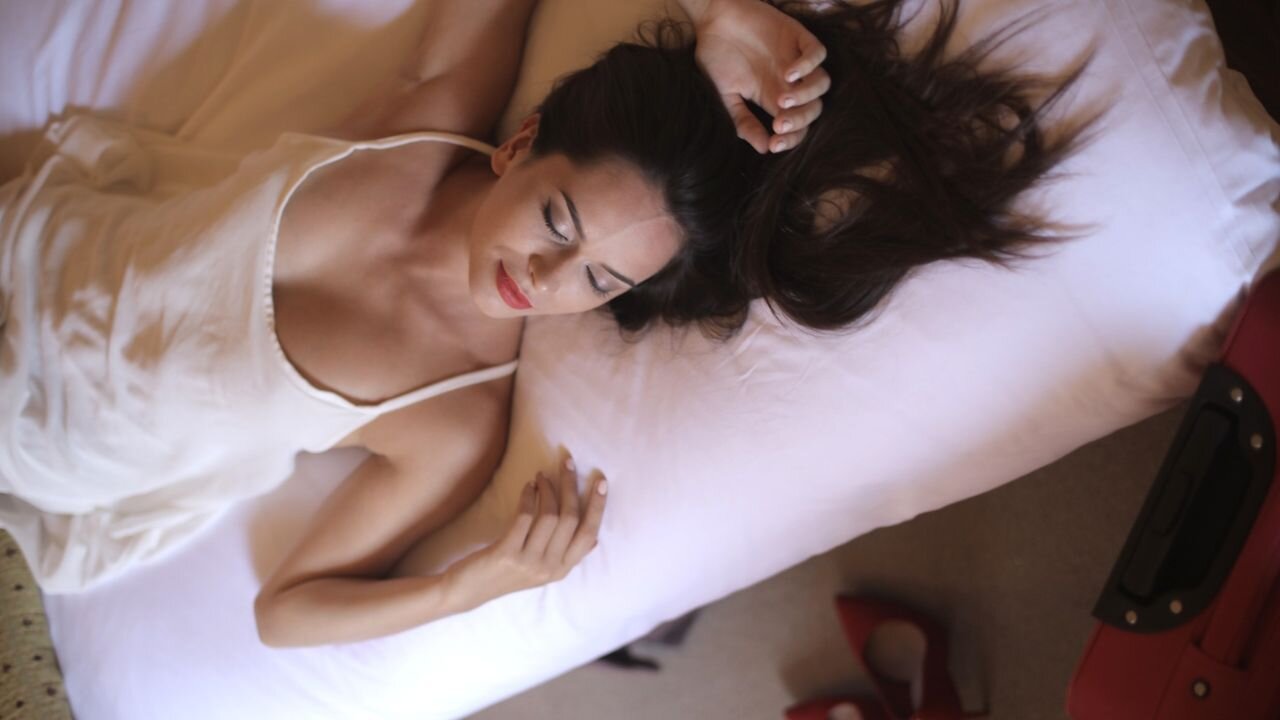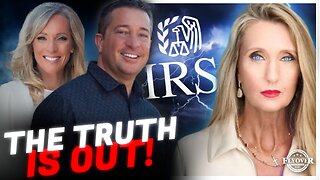Premium Only Content

Americans will do anything for a silent night this holiday season
What’s on Americans’ wish list for the holidays this year? For two in three, it’s a decent night of sleep.
A new poll of 2,000 US adults found 62% claim the winter holiday season is their busiest time of year and 66% said if they could, they’d beg Ol’ Saint Nick for any product that could give them better sleep.
The biggest contributors to a lack of sleep during the holidays include cooking and preparing meals (36%), shopping stress (34%), financial stress (34%) and having family over (30%).
Seven in 10 will force themselves to stay up later in the evenings in order to tackle the tasks they couldn’t finish during the day — including wrapping gifts (37%) and cooking or preparing meals (28%).
Over half (58%) similarly find themselves waking up earlier in the mornings for the same reasons.
Commissioned by Mattress Firm and conducted by OnePoll, the study found the most sleepless nights of the holiday season are Christmas Eve (43%), New Year’s Eve (38%), Christmas Day (35%), Thanksgiving (26%) and Black Friday (17%).
Over the course of the holidays, 64% of people are likely to gather with their extended relatives. And if they’re traveling, 55% are likely to lose out on quality sleep if they aren’t in their own bed.
Those who celebrate Christmas especially feel the midnight oil burn: 67% of them are likely to stay up late on Christmas Eve with their family. Three in four (74%) claimed they’re the last ones to go to bed that evening, ensuring everyone else is tucked in before them.
Over half (52%) of Christmas-celebrating parents said their kids still believe in Santa. Sixty-two percent of those kids insist on staying up late on Christmas Eve in an attempt to catch Mr. Claus in the act.
New Year’s was also found to be a major culprit in sleep loss during the holidays. Nearly four in five (78%) of those who celebrate stay up late on the Eve. Even then, 32% get so exhausted, they can never make it to midnight.
“There’s something about the holiday season that, while exciting and usually a time to enjoy family, is also absolutely exhausting,” said Dr. Chris Winter, neurologist, sleep specialist and sleep advisor at Mattress Firm. “Having family over, shopping, budgeting — it can all stack up and make getting a sound night of sleep seem like a distant, nearly-impossible-to-reach fantasy.”
The study also found the holiday season’s best nights for sleep: the nights after Thanksgiving (27%), Christmas Day (26%) and New Year’s Day (18%).
For at least one in three (37%), it’s easier to sleep the night after a major holiday. But for 20%, it’s still a challenge.
On average, respondents claimed they need three days to pass after the holiday season before they can sleep soundly again.
Post-holiday recovery sleep can still be impacted by family overstaying their welcome (45%), cleaning up after guests (45%) and financial worries (33%).
“Getting decent rest during the busy holiday season begins by first committing to a sleep routine so that no matter where you are, the ritual will help you relax and prepare for bed. It’s also helpful to pace yourself and give yourself time between holiday tasks to decompress,” suggests Dr. Chris Winter. “Instead of taking on one task after another, you can give yourself time to relax and get better quality sleep by dividing your to-do list throughout the day.”
TOP 10 HOLIDAY TASKS PEOPLE STAY UP LATE TO FINISH
-Wrapping presents - 37%
-Cooking/preparing holiday meals - 28%
-Watching holiday movies - 27%
-Shopping - 25%
-Chatting with family/friends - 21%
-Decorating - 21%
-Baking cookies/pastries - 21%
-Planning/preparing holiday parties - 14%
-Home décor changes - 13%
-Playing holiday-related games - 8%
Survey methodology:
This random double-opt-in survey of 2,000 Americans who celebrate a winter holiday was commissioned by Mattress Firm between October 12 and October 17, 2022. It was conducted by market research company OnePoll, whose team members are members of the Market Research Society and have corporate membership to the American Association for Public Opinion Research (AAPOR) and the European Society for Opinion and Marketing Research (ESOMAR).
-
 0:48
0:48
SWNS
1 day agoHottest careers for men and women in 2025
11 -
 LIVE
LIVE
SpartakusLIVE
7 hours agoShadow BANNED Day 1 of NEW Season || Has WZ been FIXED?!?!
995 watching -
 1:19:42
1:19:42
Glenn Greenwald
8 hours agoLab Leak Revelations Prove Corrupt Suppression of COVID Dissent; CNN Boots Jim Acosta: Who & What is a "Journalist"? | SYSTEM UPDATE #398
69K92 -
 1:11:00
1:11:00
Donald Trump Jr.
12 hours agoFirst White House Press Briefing, Plus Behind the Scenes on Capitol Hill w/ Rep Vince Fong & Sen Eric Schmitt | TRIGGERED Ep.211
188K163 -
 1:45:52
1:45:52
Redacted News
9 hours agoBOMBSHELL! Trump about to announce largest spending FREEZE in American history, deep state in PANIC
193K371 -
 1:05:23
1:05:23
Man in America
12 hours agoDeepSeek & the AI War to Dominate the New World Order w/ Mike Adams
42.1K13 -
 LIVE
LIVE
DLDAfterDark
3 hours ago $1.04 earnedDLD Live! Are They Planning an Attack?? The "cute winter boots" Trend & What it Means!
329 watching -
 55:26
55:26
Flyover Conservatives
1 day agoFrom Conspiracy Theory to Proven Fact: Breaking Free from the American Corporation - Ann Vandersteel | FOC Show
33.8K5 -
 1:48:32
1:48:32
Danny Polishchuk
9 hours agoThe Funniest Call In Show On Earth - Live From New York City's Best Comedy Club
35.3K -
 1:01:12
1:01:12
The StoneZONE with Roger Stone
6 hours agoTrump Authorizes ICE Raids That Save Women and Children | The StoneZONE w/ Roger Stone
39.3K5